Best Serum for Dark Spots – Clear & Brighten Skin
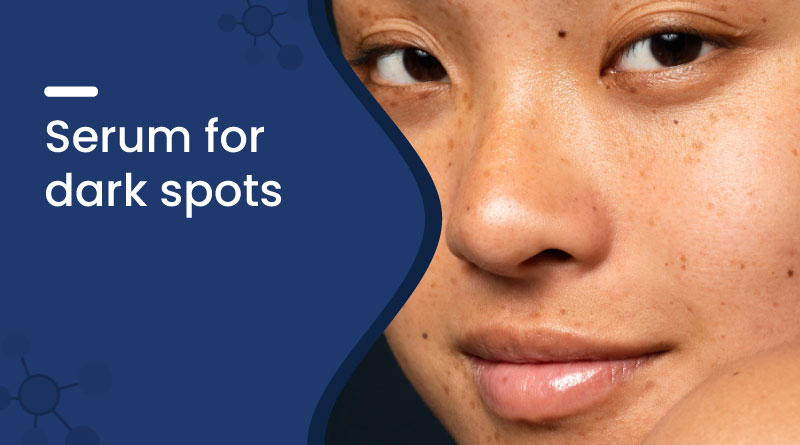

Dark spots can be frustrating. Whether they come from acne scars, sun damage, or aging, they often leave you searching for a solution. One of the most popular remedies in skincare today is serum for dark spots. What does it do, and how do you choose the right one? In this blog, we’ll simplify everything you need to know about serums for dark spots—how they work, why they’re effective, and what to look for.
What is a Serum for Dark Spots?
A serum for dark spots is a lightweight skincare product designed to fade hyperpigmentation, age spots, acne marks, and uneven skin tone. These serums are packed with active ingredients that penetrate deep into the skin to brighten and even out complexion.
They often contain ingredients like:
- Niacinamide
- Vitamin C
- Alpha Arbutin
- Licorice Extract
- Kojic Acid
- Retinol
Best Serum for Dark Spots
| Product Name | How It Supports Skin & Hair Health |
|---|---|
| Niacinamide 10% Face Serum | Controls oil, minimizes pores, and improves skin tone; ideal for acne-prone and oily skin. |
| Retinol 1% Face Serum | Fights signs of aging, smoothens fine lines, and improves skin texture and tone. |
| Vitamin C-15 Serum | Brightens skin, reduces pigmentation, and boosts collagen production with 15% Vitamin C. |
These ingredients target melanin production, reduce pigmentation, and support skin cell turnover.
How Does a Dark Spot Serum Work?
Dark spot serums work by slowing down melanin production and speeding up the shedding of pigmented skin cells. Ingredients like Vitamin C and niacinamide block tyrosinase, the enzyme that produces melanin.
At the same time, ingredients like retinol and AHAs help exfoliate the upper layer of the skin, which leads to:
- Faster fading of spots
- Brighter and smoother skin
- Improved skin tone
Consistent use makes skin even and radiant.
When Should I Use a Serum for Dark Spots?
The best time to use a dark spot serum is after cleansing and before moisturizing, both in the morning and evening. Some ingredients, like Vitamin C, work best in the morning to protect from sun damage, while retinol and AHAs are more suited for nighttime use.
Pro tip: Always follow with sunscreen in the daytime to protect fading spots from getting darker.
How Long Do Dark Spot Serums Take to Work?
Patience is key. A good serum for dark spots typically shows visible improvement in 4 to 8 weeks. However, the timeline depends on:
- Severity of pigmentation
- Skin type
- Consistency of use
- Strength of active ingredients
Consistency is critical. Don’t expect overnight miracles. Regular use and proper skincare habits can gradually lead to visible changes.
What Ingredients Should I Look for in a Serum for Dark Spots?
Top ingredients that help fade dark spots:
1. Vitamin C
- Brightens skin
- Fights free radicals
- Reduces sunspots
2. Niacinamide
- Regulates melanin
- Improves skin texture
- Calms inflammation
3. Alpha Arbutin
- Gentle skin lightener
- Safe for daily use
- Reduces uneven tone
4. Kojic Acid
- Derived from fungi
- Effective for melasma and age spots
5. Licorice Extract
- Natural brightening agent
- Soothes irritation
These ingredients are well-tolerated by most skin types and are often combined in multi-tasking formulas.
Can Serums Prevent Dark Spots from Returning?
Yes—to an extent. A good dark spot serum can:
- Suppress melanin production
- Protect from environmental damage
- Improve the skin barrier
But for lasting results:
- Use sunscreen daily
- Avoid picking or popping pimples
- Maintain a consistent skincare routine
Even the best serum won't help if your skin is constantly exposed to triggers like UV rays or harsh chemicals.
Are There Any Side Effects of Using a Serum for Dark Spots?
Dark spot serums are generally safe when used properly. However, some active ingredients like retinol or AHAs may cause:
- Mild irritation
- Redness
- Peeling (in sensitive skin)
To avoid issues:
- Start with patch testing
- Use moisturizer to buffer strong actives
- Introduce products gradually into your routine
- Stop use if irritation continues and see a dermatologist
Frequently Asked Questions
Q. Can I use a dark spot serum daily?
A. Yes, most serums are safe for daily use. Start with once a day and increase frequency if your skin tolerates it.
Q. Should I apply serum in the morning or night?
A. Both. Morning use offers protection (with ingredients like Vitamin C), while nighttime use boosts repair (with actives like retinol).
Q. How much serum should I apply?
A. Just 2–3 drops are enough. Apply a thin layer over your face and focus on dark spots.
Q. Is serum suitable for all skin types?
A. Yes, but choose the formula wisely. Sensitive skin should avoid harsh acids or high-strength retinol.
Q. Can I wear makeup over serum?
A. Absolutely. Just let the serum absorb fully and follow with moisturizer and SPF before applying makeup.
Conclusion
A serum for dark spots can be a game-changer in your skincare routine. With the right ingredients and consistent use, you can achieve clearer, brighter, and more even-toned skin. Look for ingredients like Vitamin C, niacinamide, and arbutin, and always pair your serum with good sun protection and hydration.
Stay consistent, be patient, and let your skin glow.
Niacinamide 10% Serum
30ml In 1 Bottle
2% Hyaluronic Acid + 3% Vitamin B5 Serum
30ml In 1 Bottle
Tranexamic Acid 5% Serum With Radiant skin
30ml In 1 Bottle
Recent Blogs
Disclaimer : Zeelab Pharmacy provides health information for knowledge only. Do not self-medicate. Always consult a qualified doctor before starting, stopping, or changing any medicine or treatment.

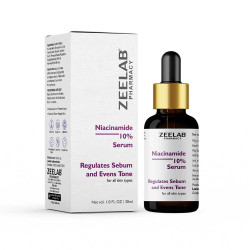
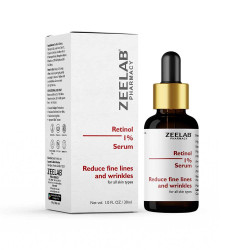
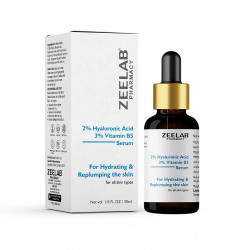
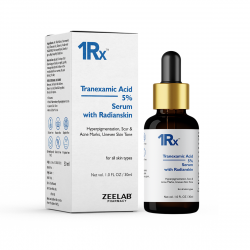
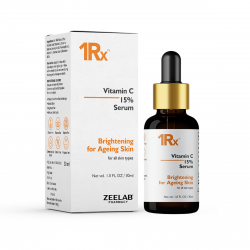















 Added!
Added!